President of the 76th session of the UN General Assembly Abdulla Shahid has left for Azerbaijan. Prior to the visit, he answered questions from Report’s local bureau. Report presents an exclusive interview with President of the 76th session of the UN General Assembly Abdulla Shahid.
-During the pandemic, you carried on a difficult task by guiding the General Assembly. As you know, General Assembly has adopted a resolution about the vaccine equity initiated by Azerbaijan in its capacity as a Non-Aligned Movement (NAM) Chair. How do you assess the role of Azerbaijan in the fight against the Covid pandemic?
- Yes, the pandemic has had a devastating impact across the planet. No country has been spared. At the UN, we had the difficult task of opening up multilateral processes to in-person participation. This required a lot of hard work on the part of my office, the host government, the UN Secretariat and the city of New York. However, I am happy to inform that the UN is now fully open for in-person business.
I am fully aware of the important role played by Azerbaijan as the Chair of the Non-Aligned Movement (NAM). I recollect the online summit convened by President Ilham Aliyev on May 4, 2020, during which he had proposed that NAM countries could initiate a proposal requesting for convening a Special Session of the UN General Assembly on COVID-19 at the level of Heads of State and Government.
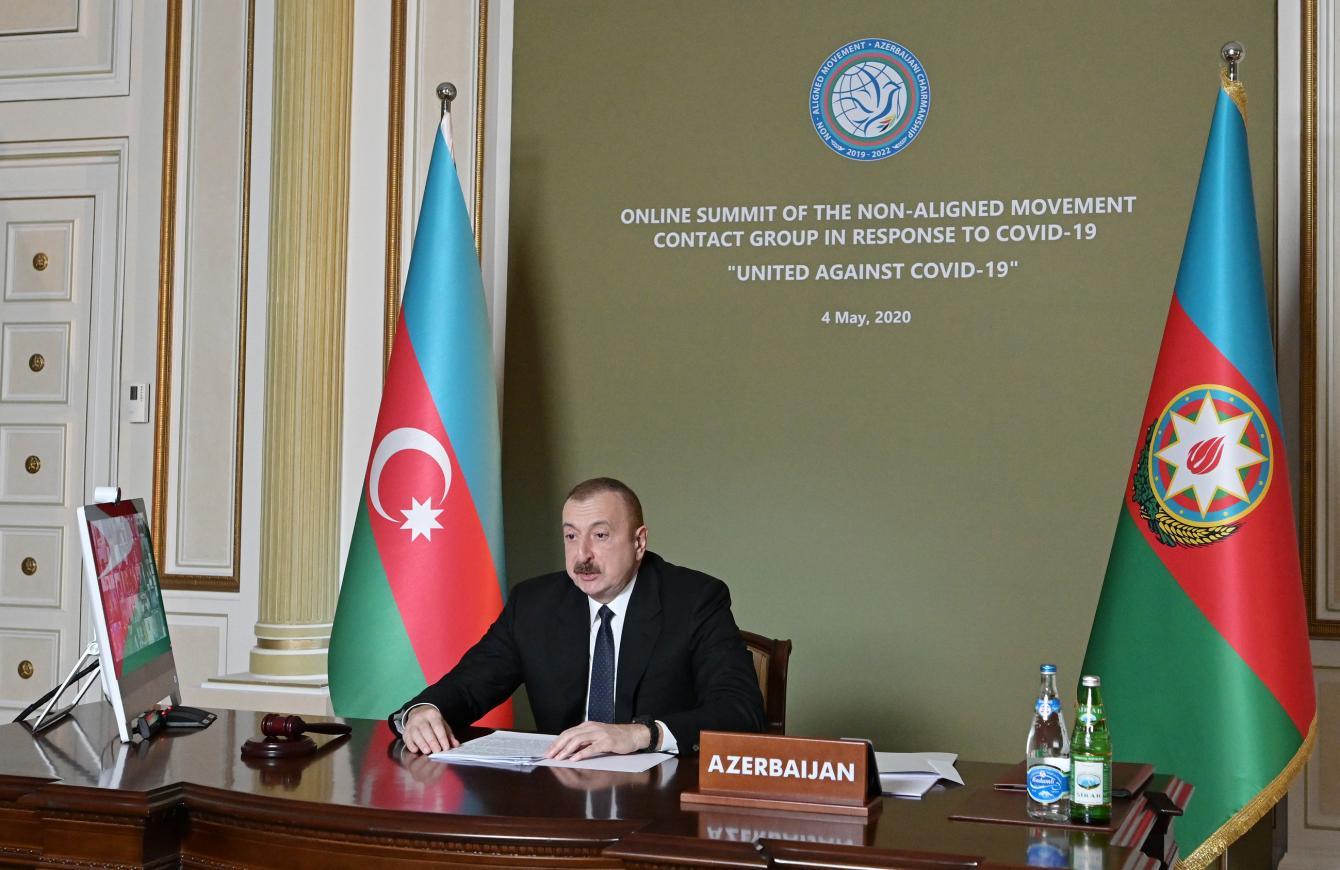
Azerbaijan’s initiative was supported by 150 UN member states. This widespread support for the initiative underscored the importance of multilateralism and the consensus that international efforts to deal with the repercussions of COVID-19 need to be intensified.
The 31st Special Session of the General Assembly took place on December 3-4, 2020. Participating leaders at the event underscored the need for ensuring swift resource mobilization to support COVAX for equitable distribution of COVID-19 vaccine; accruing more investment in social and health services; alleviating the debt burden in LDC, LLDC and SIDS through intervention by international financial institutions and partner countries; and delivering much-needed development assistance.
The convening of this special session delivered a message of reassurance that the world is united in its fight against a common enemy.
I also want to note that Azerbaijan donated $5 million to WHO, as well as to other financial, humanitarian and medical donations to the UN Member States to support their fight against the pandemic. This is a great example of solidarity, of people coming together, during the pandemic.
I would also like to thank Azerbaijan for joining my New Year’s Resolution pledge on vaccine equity. I also thank President Ilham Aliyev who, as a NAM Chair, sent a video message for the high-level event entitled “Galvanizing momentum for global vaccination”, that I convened on February 25, 2022, at United Nations Headquarters.
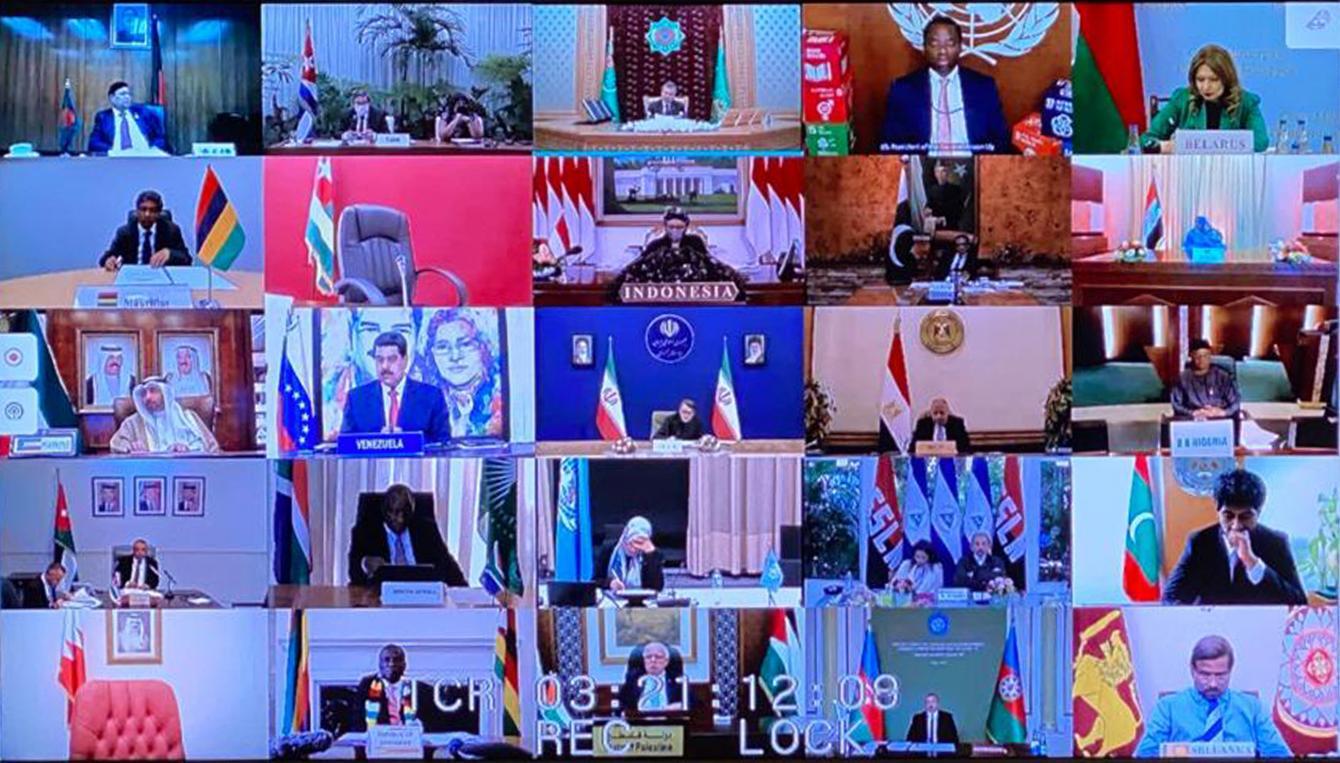
-Azerbaijan is one of the most hardworking countries that make immense efforts to achieve Sustainable Development Goals. How would you evaluate the attainments of Azerbaijan in this process?
- The COVID pandemic has resulted in a global setback to the attainment of the Sustainable Development Goals in all sectors. No country has been immune to those setbacks.
I am aware that the UN and its partners in Azerbaijan are working closely with the government to address the major development challenges faced by people in Azerbaijan.
Azerbaijan has already prioritized the 17 SDGs, 88 targets, and 119 indicators covering economic, social, and environmental aspects of sustainable development.
In 2017 and 2019, Azerbaijan submitted two Voluntary National Review (VNR) reports which made the country the first among the CIS to submit two VNRs.
Through the Presidential Decree of 2016 to establish the National Coordination Council for Sustainable Development (NCCSD) Azerbaijan has clearly demonstrated its firm commitment towards achieving the 2030 Agenda. Today the NCCSD has become a key partner for the United Nations to channel its support to the Government of Azerbaijan.
Azerbaijan is also one of the first countries to undertake a MAPS mission (Mainstreaming, Acceleration and Policy Support for the 2030 Agenda) which outlined concrete policy and programming steps that could be taken to accelerate the SDGs nationally.
The 2018 Baku Forum on Sustainable Development also marked the adoption of the Baku Principles which established provisions on the integration of SDGs and acceleration of their implementation.
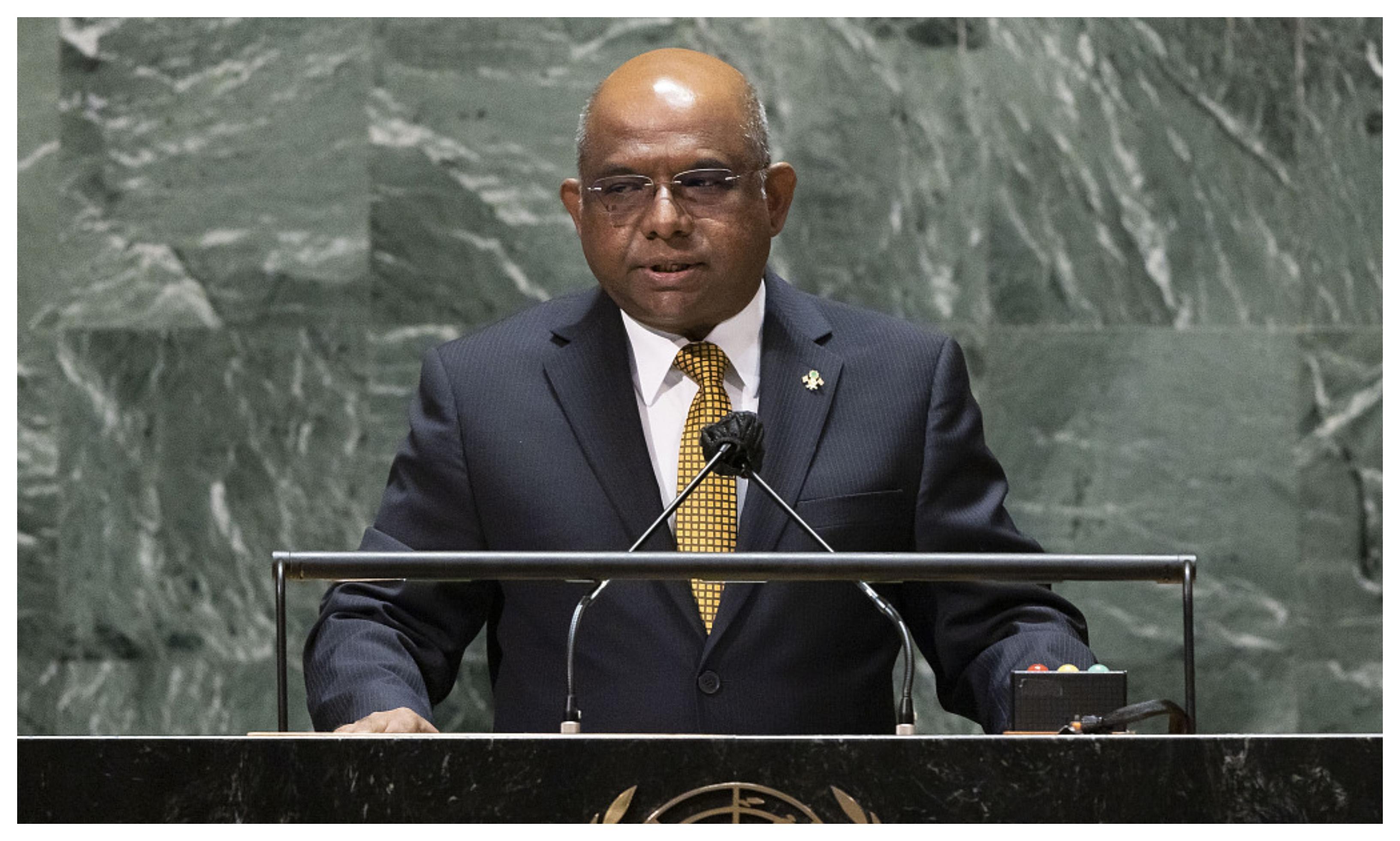
With UN support, the National Information Portal on SDGs was launched, which introduces an interactive dashboard, collects consolidated data, tracks and monitors progress towards the SDGs in real-time.
Despite the pandemic, I am given to understand that Azerbaijan is on track to achieve SDG 1 (No Poverty) and SDG6 (Clean Water and Sanitation), and also moderately improving on SDGs 3 (Good Health and Well-being), SDG7(Affordable and Clean Energy), SDG 13 (Climate Action), and SDG 11 (Sustainable Cities).
- Which topics are on your agenda during your visit to Azerbaijan?
- There isn’t a set number of topics on the agenda. The planet is grappling with several issues - COVID, climate change and conflict, are just the tip of the iceberg.
During my visit, I will have the opportunity of meeting with the Minister of Foreign Affairs Jeyhun Bayramov, on June 13. We will discuss issues on the agenda of the General Assembly, as well as major events coming up at the UN.
I will also meet with the Chair of the Parliament, Sahiba Gafarova. As a former Speaker of the Parliament, this is a meeting that I am also looking forward to. Parliaments as legislation-making bodies have an important role to play in strengthening multilateralism. I will encourage the Chair to sensitize the Parliament on issues that the General Assembly is seized of. I will also brief her on the gender-related initiatives that I have taken up at the UN including a special event that I had convened on the sidelines of the Commission on the Status of Women focusing on violence and harassment against women in politics.
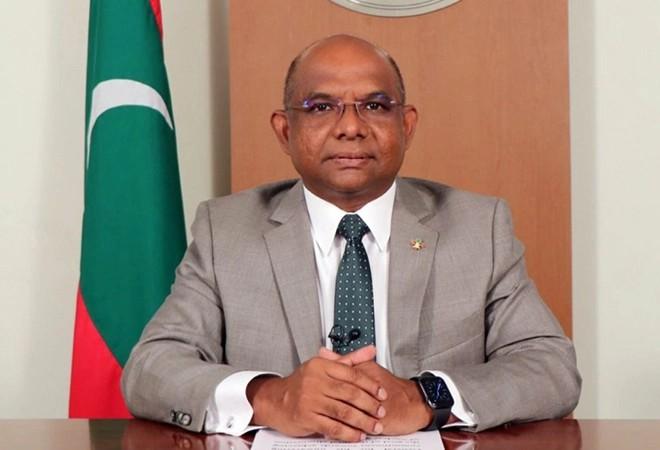
During my visit, I will also actively engage with young people and academics at the ADA University, formerly known as the Azerbaijan Diplomatic Academy. The event will be co-organized by the ADA University and the NAM Youth Network.
And before I leave, I will also meet with the UN agencies working in Azerbaijan, under the direction of Resident Coordinator, Vladanka Andreeva, to know more about their projects.
- We all know that you called your presidency "Presidency of Hope". What do you think, were you able to guide member states towards their hopes?
I chose “hope” as the theme of my Presidency because I strongly believed that the world was desperately in need of a positive message at a time when devastation dominated every aspect of our life during the peak of the COVID pandemic.
I am convinced that the solutions for the problems plaguing the planet rest in the international community joining hands, setting aside its differences and working towards a common goal. It's only when we are united that we are stronger.
International cooperation brings results, and the United Nations should be at the forefront of advocating for collective action and making sure that no one is left behind.
As you may be aware, I have five key priorities that I have been working towards during my Presidency of Hope – recovering from the pandemic, rebuilding sustainably, responding to the needs of the planet, respecting the rights of all, and revitalizing the United Nations.
In addition, one of my goals has been to enhance youth participation in multilateral processes. In this regard, I have put together a program that provides young diplomats from underrepresented countries a chance to experience the workings of the multilateral system. For the first time, we have initiated a PGA’s Fellowship for Hope with the generous support of UN Member States. It took a great deal of work to initiate this Fellowship, and I hope that it will be continued under future presidents of the General Assembly.
Earlier this month, I was able to open a new lactation room for nursing parents in the UN, and also refurbish eight previously existing rooms. These spaces are essential for working parents from the delegations, the Secretariat, and also for visitors to the UN. This is a project that I am very proud to be associated with and I am extremely thankful to the UN system and Member States for their untiring support.


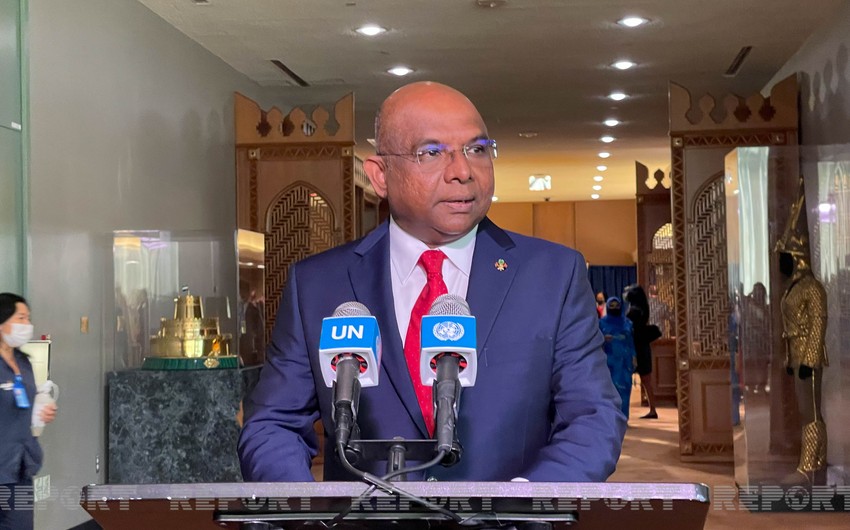 https://static.report.az/photo/a863a46c-f55c-33e5-a909-ad01bf420fd6.jpg
https://static.report.az/photo/a863a46c-f55c-33e5-a909-ad01bf420fd6.jpg

